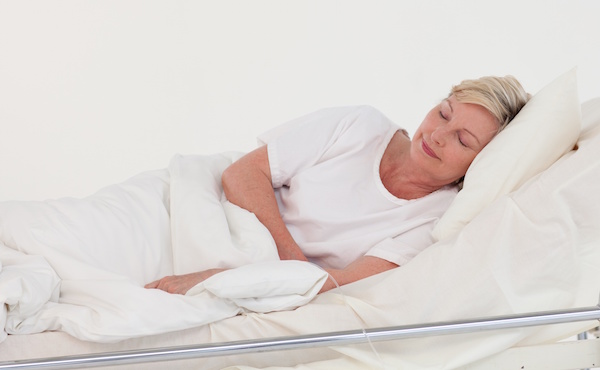
MONDAY, June 25 (HealthDay News) — Women who exercise may cut their risk of breast cancer by as much as 30 percent, a new study suggests.
Weight gain, however, may undermine the benefit of exercise, the researchers noted.
“Our study showed that moderate recreational physical activity may reduce breast cancer risk,” said lead researcher Lauren McCullough, from the University of North Carolina Gillings School of Global Public Health, in Chapel Hill, N.C.
“Importantly, we found reduced risk of breast cancer for women who engaged in exercise after menopause,” she said. “This is particularly encouraging given the late age of onset for breast cancer.”
The report was published in the June 25 online edition of Cancer.
For the study, McCullough’s team collected data on more than 1,500 women with breast cancer and a similar number of women without the disease. All the women had taken part in the Long Island Breast Cancer Study Project.
They found women who exercised before or after menopause had a reduced risk of breast cancer.
Women who exercised 10 to 19 hours a week had the largest benefit — about a 30 percent reduced risk.
The risk of breast cancer was cut with any amount of exercise, the study found. The risk reduction was seen mostly for hormone receptor-positive breast cancer, which is the most commonly diagnosed type among American women.
Even among active women, however, gaining a significant amount of weight, particularly after menopause, increased the risk of breast cancer, negating the beneficial effect of exercise, the researchers found.
McCullough said the reasons that exercise is linked with a reduced risk of breast cancer aren’t known.
Yet it is known that maintaining a normal body weight is associated with reduced breast cancer risk.
“It is thought that a reduction in body fat results in less exposure to circulating hormones, growth factors and pro-inflammatory markers, all of which have been shown to be related to breast cancer risk,” she said.
“Other mechanisms include enhanced immune response, antioxidant capacity and DNA repair,” she added.
One expert believes reducing the risk for breast cancer means living a healthy lifestyle overall.
“There is more and more evidence that one of the things women can do to reduce the risk of breast and other cancers is to modify their lifestyle,” said Dr. Stephanie Bernik, chief of surgical oncology at Lenox Hill Hospital, in New York City.
Women who exercise more probably lead a healthier lifestyle — they watch what they eat, they don’t smoke, they don’t drink.
“It’s hard to say it’s just exercise,” Bernik said. “This goes along with what we tell patients: ‘If you live a healthy lifestyle your risk for cancer probably can be lowered.'”
More information
For more about breast cancer, visit the American Cancer Society.

